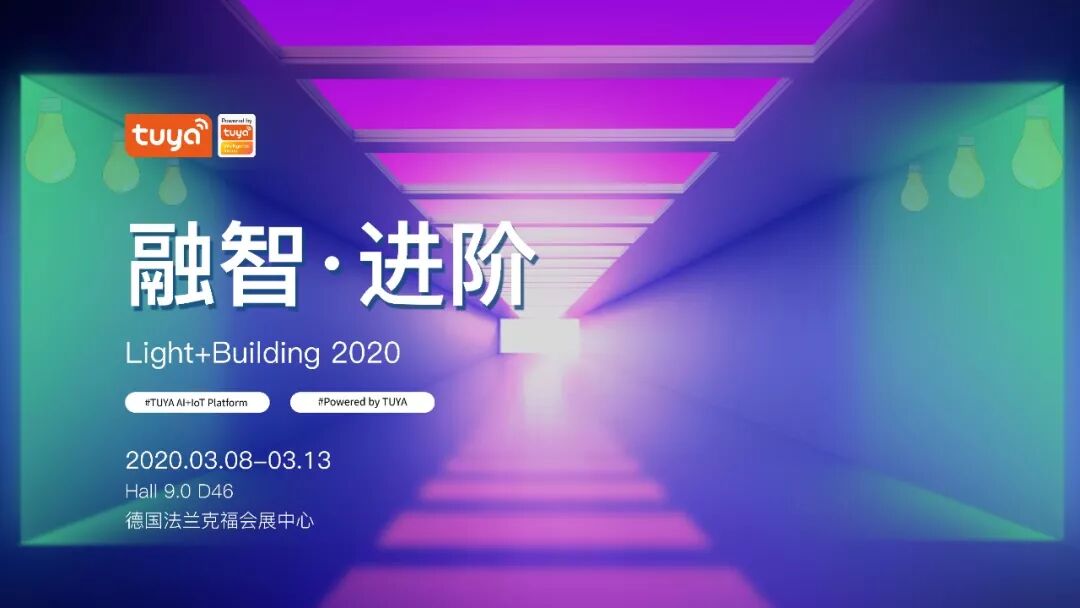
This article is adapted from the Bluetooth Special Interest Group by Li Jiarong
Li Jiarong
Senior Marketing Manager, Asia Pacific, Bluetooth Special Interest Group
In recent years, the popularity of connected lighting has remained high, both in public spaces and home environments. The low power consumption, low cost, and easy networking features of Bluetooth mesh networks provide a favorable foundation for the development of smart lighting solutions, quickly becoming the preferred wireless communication platform for many control systems. According to the “2019 Bluetooth Market Update,” the annual shipment of Bluetooth residential lighting devices is expected to grow 4.5 times by 2023.
Currently, some leading manufacturers have released long-term product plans for lighting automation and control systems.Bluetooth member company Tuya Smart has been deeply involved in the Bluetooth mesh IoT field for several years, and its integrated smart lighting solutions are at the forefront.
Recently, I spoke with Yang Yi, Co-founder and Chief Operating Officer of Tuya Smart, to discuss the practical use cases of their smart lighting solutions and future development directions.

Conversation with Yang Yi
What fields are your company’s Bluetooth mesh solutions primarily applied in?
Currently, Tuya Smart’s Bluetooth mesh solutions are mainly applied in commercial lighting, electrical work, and sensing fields.
Commercial Lighting: Bluetooth mesh lighting can meet the daily usage requirements of homes, ensuring that the overall communication and usage are not affected when a single device fails, with stability that meets consumer expectations. Additionally, its low power consumption and strong device capacity meet the requirements of commercial lighting, making it an ideal lighting solution for smart buildings, smart communities, smart industries, and smart cities.
Electrical Work: As a fundamental and frequently used category in daily homes, Bluetooth mesh networks can meet the comprehensive layout requirements of electrical work, and the network configuration is simpler.
Sensing Field: Sensor networks play a role in perception and alarm in daily homes. The stability and strong capacity of Bluetooth mesh networks enable devices to achieve automated communication.
“
“Bluetooth mesh networks meet the requirements of commercial lighting with low power consumption and strong device capacity, making them an ideal lighting solution for smart buildings, smart communities, smart industries, and smart cities.”
”Could you provide examples of practical use cases for your smart lighting solutions?
One of our clients in the traditional lighting field lacks the capability to produce smart lighting products and implement smart lighting scenarios.
Tuya Smart’s lighting solution utilizes Bluetooth mesh technology, leveraging their existing lighting system as a platform to create a Bluetooth mesh network, allowing users to manage and control it through various devices such as web interfaces, central control panels, and mobile apps.
Relying on Tuya’s IoT platform and Bluetooth mesh networking capabilities, end users can integrate a wide range of smart products (such as HVAC, various sensors, etc.) into the entire system through “Lighting as a Platform (LaaP),” enabling remote diagnostics, energy management, and various big data services.
Moreover, by integrating low-power Bluetooth devices, Tuya has also achieved indoor positioning, asset management, and more functionalities, truly realizing a three-dimensional Bluetooth ecosystem. With Tuya’s smart lighting solutions, this client quickly implemented smart lighting in small to medium commercial scenarios, suitable for classrooms, parking lots, hotels, and other commercial environments.
Why did you choose to develop smart lighting solutions using Bluetooth mesh technology?
We believe that the advantages of Bluetooth mesh can meet various needs of Tuya Smart’s lighting solutions.
-
Many-to-Many, breaking the limitations of traditional Bluetooth communication. Bluetooth mesh networking technology optimizes the network flooding communication mechanism, allowing more nodes to connect while maintaining good communication performance. Notably, since each node can relay information, it avoids communication interruptions caused by single point failures, making it suitable for large-scale clustered commercial lighting (such as shops, classrooms, and parking lots).
-
Low Power Consumption, enabling large-scale device networks. When networking with Bluetooth mesh, multiple nodes can still maintain high stability. Therefore, the more devices connected in a household, the more pronounced the advantages of Bluetooth mesh become.
-
Easy Networking, Better User Experience. Simply turn on Bluetooth, select device search on the mobile app, and the Bluetooth mesh device in networking mode will automatically connect. This convenient operation aligns with current consumer usage habits. In actual home scenarios, networking and usage can be achieved without additional gateway configuration, further lowering the user threshold and cost.
-
Low Cost. Focusing on the commercial field, in terms of chip-level execution functions, a highly integrated system-on-chip means fewer external components and lower material costs. Additionally, due to the massive global shipment of Bluetooth devices, the costs of chips and overall solutions are further reduced, allowing more smart devices to connect to the Bluetooth ecosystem.
 What role do you think Bluetooth mesh will play in the development of smart homes in the coming years?
What role do you think Bluetooth mesh will play in the development of smart homes in the coming years?
Currently, Bluetooth mesh is receiving keen attention across the industry, with smart lighting control systems playing a key role in promoting the commercial implementation of Bluetooth mesh. According to the “2019 Bluetooth Market Update,” the annual shipment of commercial lighting solution devices is expected to grow 6.5 times by 2023.
For individual users, Bluetooth mesh smart products are also very convenient to use. The high capacity and low power characteristics of Bluetooth mesh allow it to support thousands of devices working simultaneously, ensuring that a large number of interconnected smart devices can operate in both home and office environments. Therefore, Bluetooth mesh smart products can provide comprehensive convenience for life and work without worrying about high energy costs.
In smart home scenarios, Bluetooth technology, with its low power consumption, high compatibility, and high security features, lowers the usage threshold for smart homes, providing users with a more cost-effective, user-friendly, and intelligent home experience. Notably, Bluetooth signals cannot connect to or track user devices without user permission, which maximally protects user privacy.
What future development directions do you foresee for Bluetooth mesh applications?
In recent years, Bluetooth technology has garnered attention for its low power consumption, high transmission speed, high stability, high security, and high compatibility, becoming an indispensable wireless connection technology in daily life. According to authoritative research firm ABI Research, by 2021, the number of IoT devices worldwide is expected to reach 48 billion, with about one-third of those devices based on Bluetooth technology.
I believe that the future application scenarios of Bluetooth mesh technology will not be limited to smart homes and smart buildings; it also holds great potential in smart cities and even personal wearable devices.


